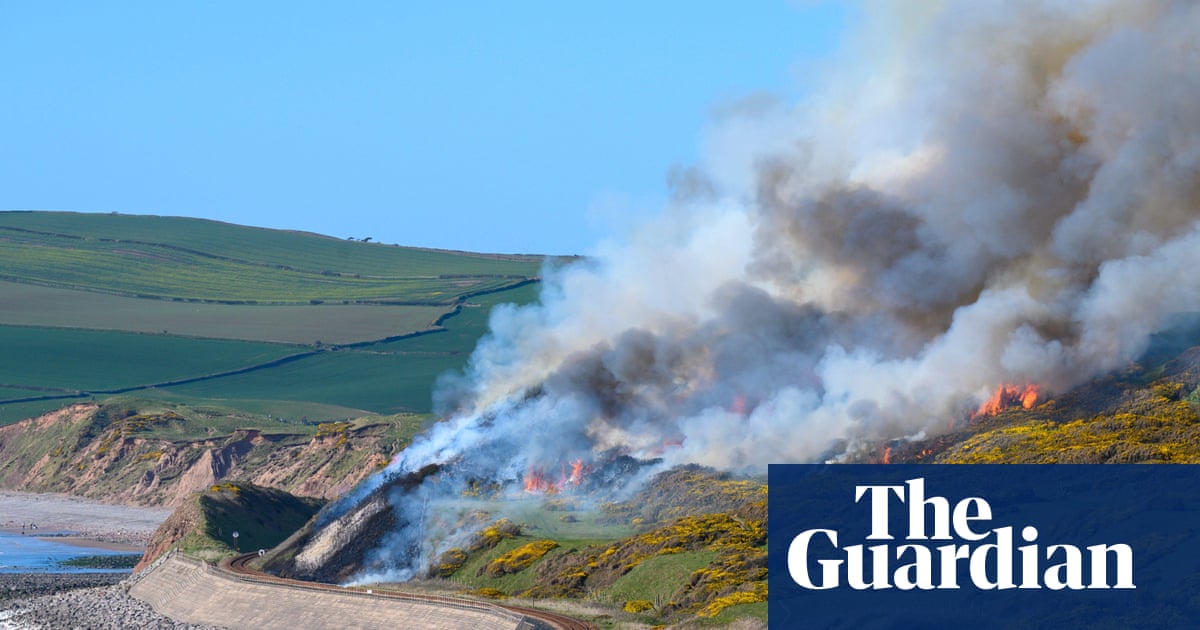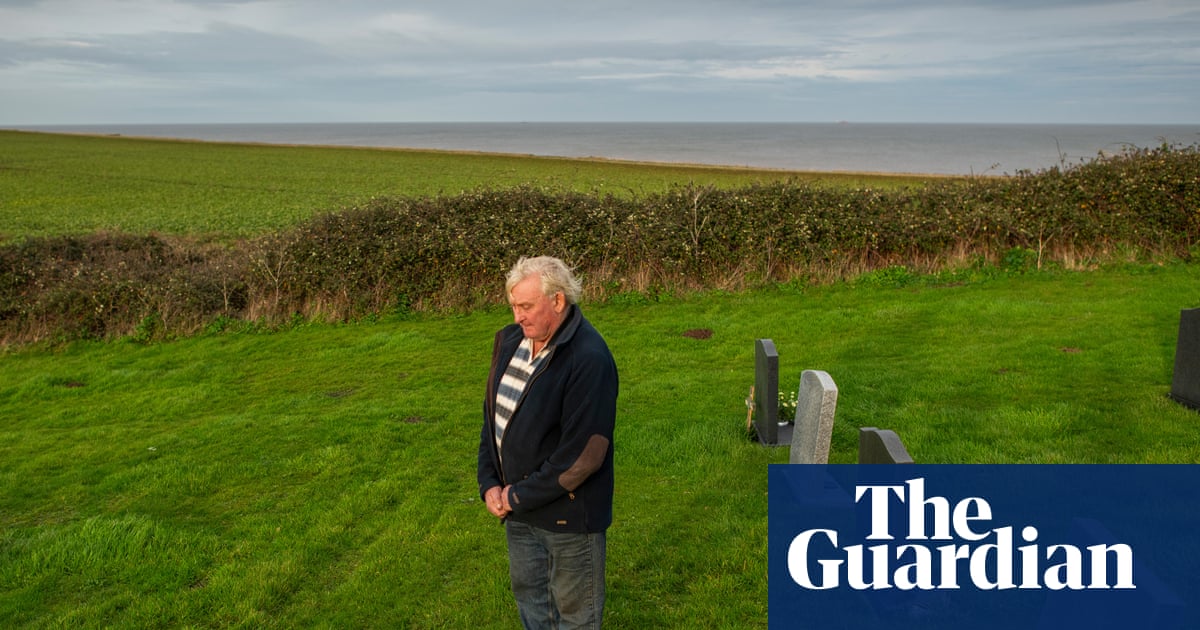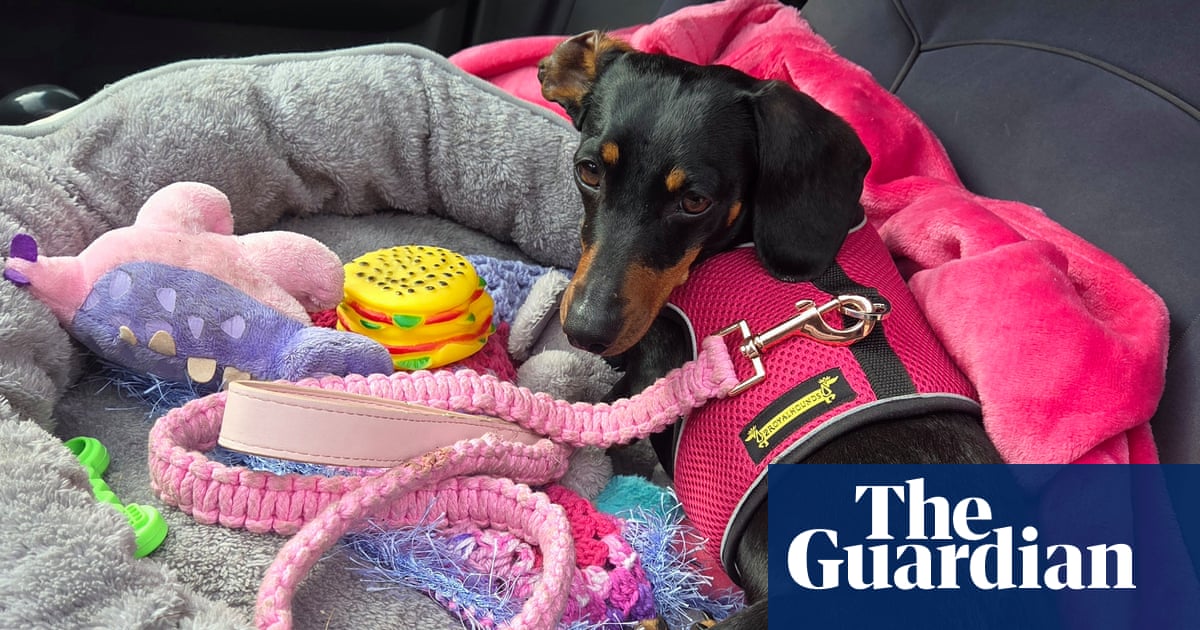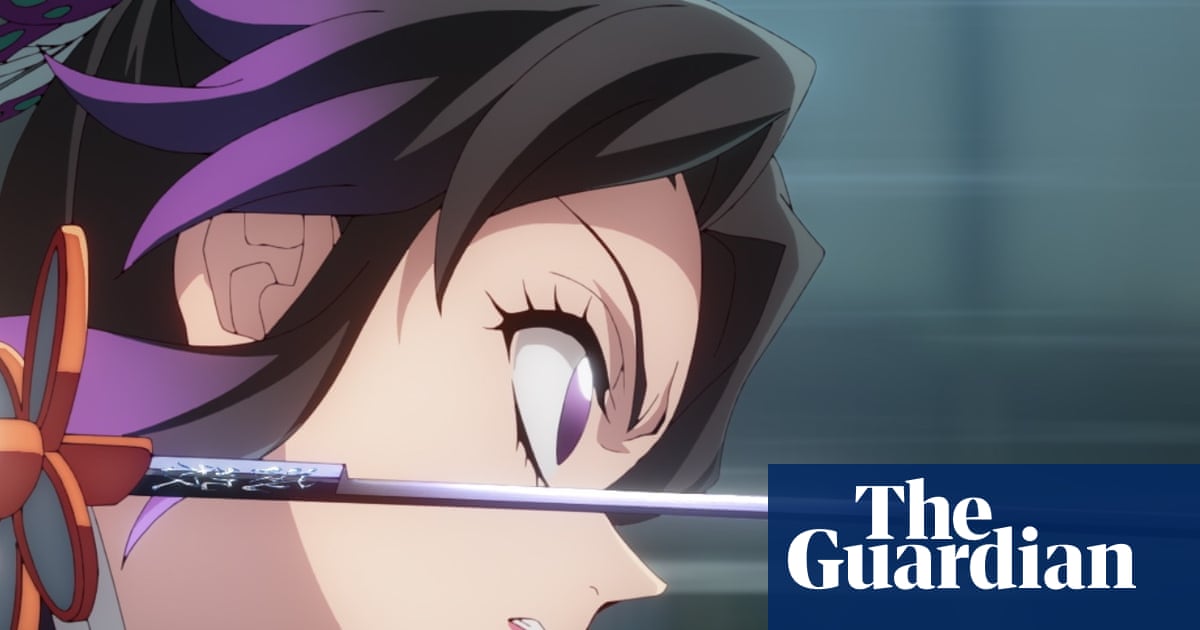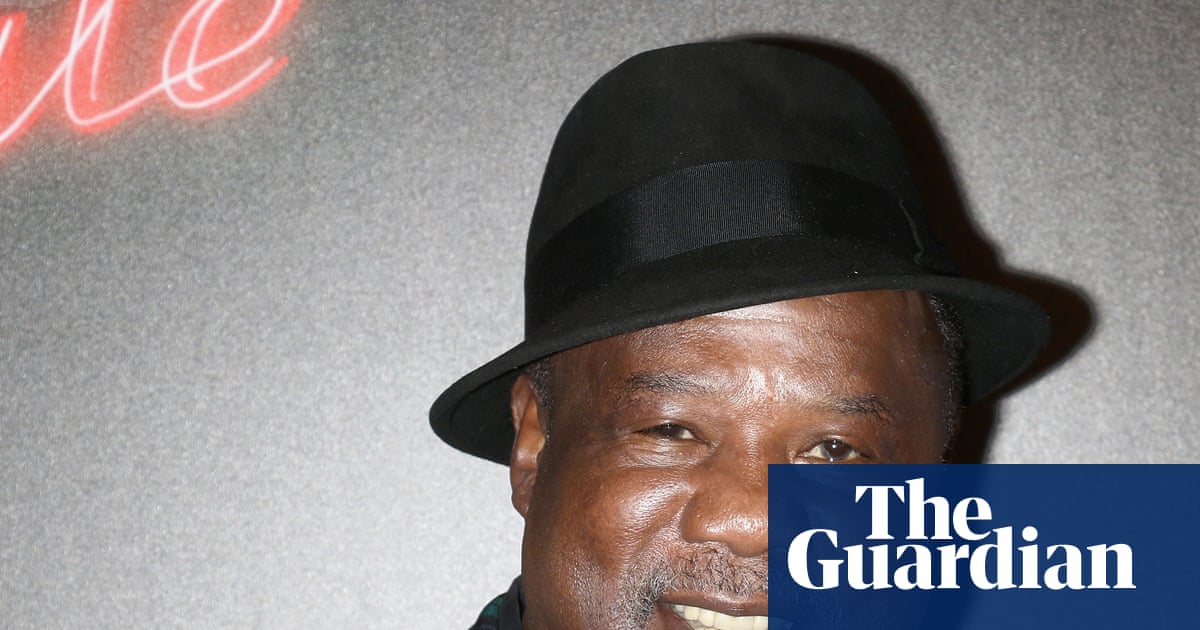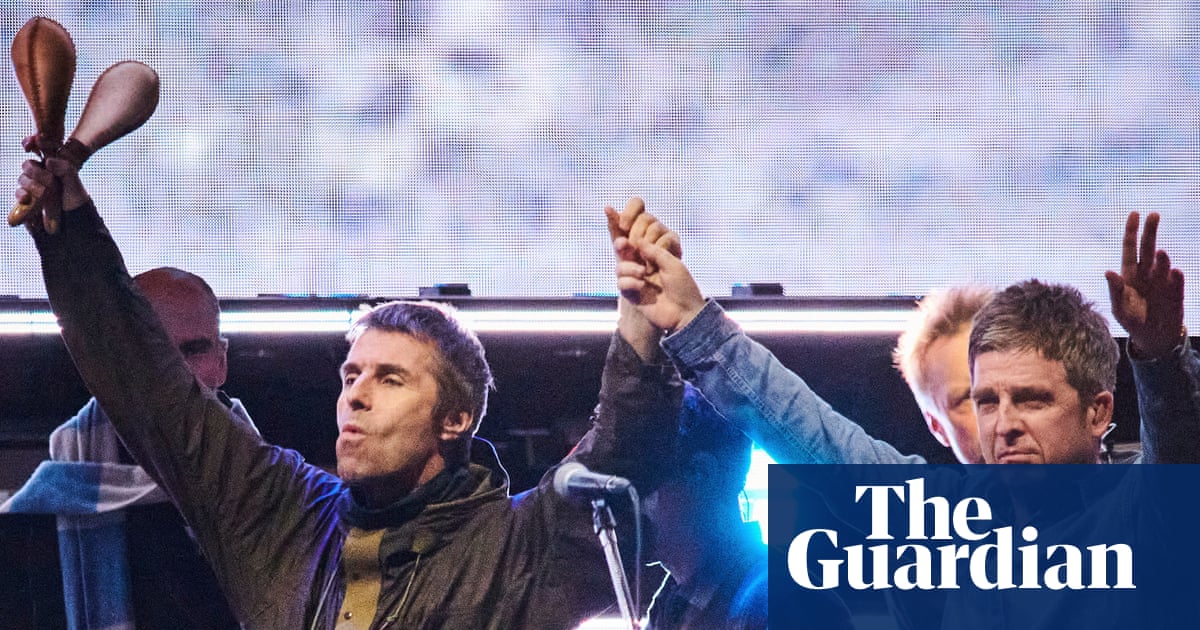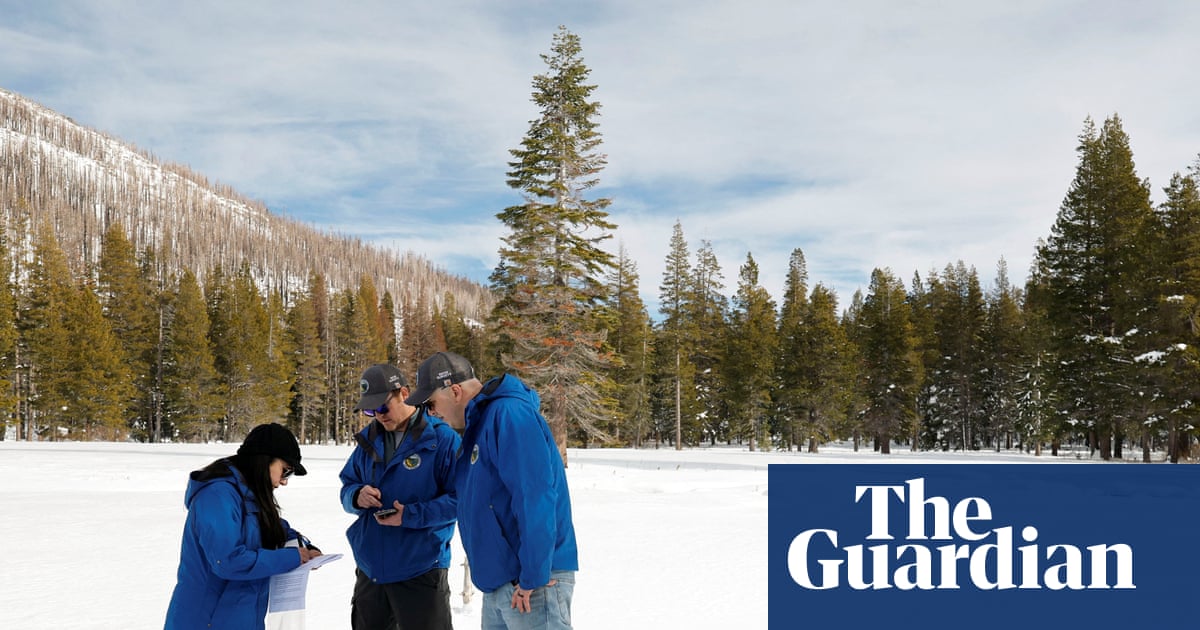As Jean Muenchrath stood at the summit of Mount Whitney, a storm thundered in. It was May 1982, and here, at the highest point of the contiguous US, she and her boyfriend Ken were coming to the end of a month-long ski and hike, 223 miles along the John Muir Trail, through the Sierra Nevada mountain range in California.
The trip had been gruelling at times – equipment had broken and they had been threatened by bears and avalanches. But it had also been exhilarating. At 22, Muenchrath was fit, strong and an experienced hiker. She had skied since she was a child and worked as a ranger for the US national park service in Montana; she and Ken, who she had met at university, had been on many smaller adventures while preparing for this one.
To avoid the worst of the storm, they swapped their planned route for a different one down the mountain. It was steep, and in order to descend they had to hang on to their ice axes, blades dug deep into the snow. Ken soon lost control and tumbled 800ft. But Muenchrath didn’t have the luxury of reacting. She had to focus on her own descent, trying to ignore her terror that she would find Ken’s broken body below.
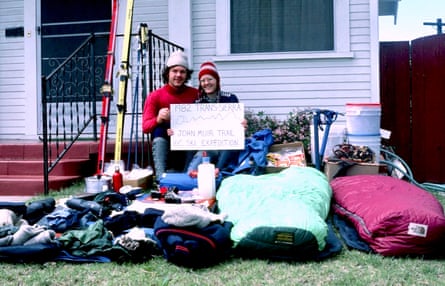
Miraculously, when she reached him, he had survived virtually uninjured. His backpack had come off when he fell, and he climbed down a rocky section to the ledge where it was resting, to retrieve their rope. Muenchrath remembers standing there, exhausted, the light waning, wondering whether she really needed to wait for the rope before continuing her descent. Ken had reached the ledge easily enough and she thought she could do the same. The skis tied to the sides of her backpack were a hazard, so she threw them down the mountain, then took off her mittens so she could grip the rock more easily.
It wasn’t long before she realised how difficult it was going to be. Ken had climbed down unhindered. Muenchrath was wearing a backpack weighing nearly 15kg and large leather ski boots that made it difficult to hang on to the minuscule holds. She was cold and hungry, and traumatised from seeing Ken fall; she hadn’t taken into account how much shorter than him she was. She couldn’t reach the holds he had used. Unable to go back up the way she came, or continue down, she was stuck. Her limbs shook from the effort, until she couldn’t hang on any longer.
“I was feeling really desperate,” she says. “I remember that last thought in my head was, God, don’t let me fall.”
Before she lost consciousness she heard her head pounding against the rocks. Ken watched her tumble down the rock face, her ice axe scraping on granite, sending sparks firing into the fading light.
“My world went dark the minute I fell,” she says. “I didn’t feel any pain, I didn’t feel my body hitting the rocks, I just heard the sound. There was no life flashing, it was just this blank.”
When she awoke, Ken was dragging her through the snow. She knew she had to get up and walk, but kept collapsing – she thinks they covered around half a mile before Ken could find a suitable place to camp.
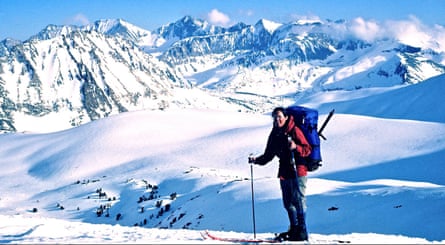
“I knew I was really injured,” she says, as we speak over Zoom, from her home in Colorado. At 65, she is warm, fresh-faced, and quick to laugh, even while talking about this extreme experience. After the fall, blood poured from wounds on her head and buttock, and, among her many injuries, she had fractured her spine in several places and broken her pelvis. She also had internal bleeding. “I was bleeding on my head, and I was weak. I hurt, but there was no focus on that. It was this disorienting period of trying to keep myself upright as best I could.”
The sun was going down as they set up camp. “It had been really stormy. I looked out and this shaft of golden light, the last light of the day, came through the clouds and lit up Mount Russell. I remember thinking, ‘This is the last thing I might see before I die.’”
That night in the tent, Muenchrath suddenly felt awake. “I had what I call my visit from death, almost like an entity.” She sensed a heavy shadow hovering above her body, not menacing but peaceful. “Now, with the passage of time, I kind of perceive that I was experiencing the life force of my body starting to leave, and that’s when I made a vow that if I lived until morning, I would live my greatest dreams.” For her, this meant visiting the Himalayas. “For some reason, I thought, ‘Make it to morning, and everything will be OK,’ but clearly I needed to make it for another week.”
Muenchrath had nicknamed their tent “the coffin” – because of its shape and size, they had to crawl to get in to it. The name now took on a grim irony. “It was very confining, and also very dark, because it was snowing so hard. The tent was getting weighed down with snow.” Muenchrath was in intense pain, but there was no space to move or change positions. She repeated to herself over and over: “I’m going to live.”
They remained in the tent for two full days and three nights, while the storm raged outside and they decided what to do. It was too risky for Ken to leave Muenchrath on the mountain alone to seek help. They had to make it down together, carrying their equipment, because they wouldn’t be able to reach safety in a single day.
It seemed impossible, but Muenchrath was desperate to leave. “When we packed up to start our journey out, I didn’t look back at the camp. I did not want to see that place. I wanted only to look forward.”
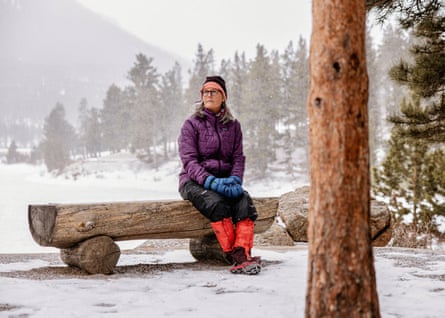
She was weak, injured and could barely move, and she would need to cover a rocky and snowy mountain pass, a 4,800ft canyon and hazards including fast-moving meltwater and thick vegetation as they got to lower altitudes. It must have seemed unthinkable. “Well, yeah, and I’m carrying 15kg [her backpack] on my broken spine and pelvis, and I’ve got gangrene now in my butt because of the injury.” She gives a small laugh. “It was daunting, but if I didn’t think too much about the distance we had to cover, or how rugged it was – and it’s still winter at the higher altitudes – it was just one step at a time. Sometimes, it was collapse, and then a step. We were going to die if we didn’t try – and if I was going to die, I was going to die making every effort to live.”
Patches of snow had melted, creating holes that were hidden until she stepped on them. They caused her to fall, pain jolting through her broken body. At one point, she crawled across the snowpack to give her back a break.
The worst part was traversing a huge glacial trough, where the snow was thigh-deep. She had to haul each foot up, ignoring the pain in her pelvis and back, before planting it again in the deep snow. “That was excruciatingly painful, and you knew you were going to do it again and again. I remember praying a lot. I would just visualise the Himalayas, like, ‘This is why you’re going through this – you’re going to see these mountains.’”
It was frightening as well as agonising. “I knew my back was broken, although I didn’t know all the details, and I was really afraid of severing my spinal cord and being paralysed, then freezing to death in a hole in the snow.”
Exhausted, they camped that night. The following day, they finally hit a trail. By then, she says, “I was collapsing left and right, literally planting my face in the dirt and then I’d get up. I was walking like a staggering drunk because I was so weak. Ken had taken my backpack at that point. I would think, ‘I’m so close, but I’m just not sure I can make it. I could just die right here.’ But every time that thought popped into my head, I balanced it with, ‘You’ve got to go see the Himalayas. Get your butt up and get walking.’”
Ken carried her the final stretch to a car park at the end of the trail. When they arrived, knowing they were close to help, the pain hit her. “I think there was some degree of suppressing it mentally, which I hadn’t realised.” She burst into tears for the first time since the fall five days earlier. She hadn’t let herself cry until then, “because it would have been so overwhelming – I think I would have just died, or couldn’t have made it.”
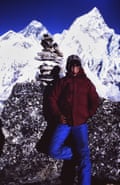
Muenchrath was still in danger: she had lost a lot of blood, was exhausted and in shock. Ken flagged down a man who took them to hospital, where she was told her spine was broken in several places, her tailbone shattered, and she had fractures to her pubic bone and hip. She had to have the gangrene in her buttock removed, and her bladder had been damaged so she needed a catheter to pass urine.
Muenchrath spent the next few months recovering in bed at her mother’s house. Her doctors had told her she probably wouldn’t hike again, which only fired her determination to do so. Within a couple of years, she was almost back to normal and was hiking and skiing with Ken again. When he was offered a job as a park ranger in Colorado, they moved there and got married – and Muenchrath also went on to work as a park ranger.
They never talked about what had happened on the mountain, and Ken urged her not to tell anyone else. “I never understood why that was,” says Muenchrath. “Maybe he felt guilty, which he didn’t need to. I’m the one who made the poor choice. Or maybe he was embarrassed.” They were together for more than 25 years, and had many other adventures before they separated in 2003, but the silence around the accident became a “sticking point”. “I really shouldn’t have put up with that, and I do think it held me up in my healing. I think that’s why I was able to move forward more after we had divorced.” Ken died in 2013.
Only two years after the fall, Muenchrath did see the Himalayas – armed with disposable catheters (her bladder was still damaged) to see her through the seven-week trek. Then she started running guided tours in Nepal.
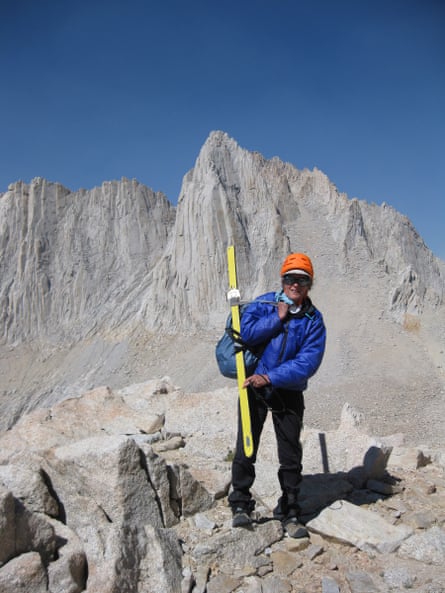
By the late 1990s, she was experiencing chronic pain as a result of her injuries, and her body and life seemed to be falling apart. For the next couple of decades, the pain came and went – sometimes she was unable to hobble even a few feet, and was confined to bed for months. “It was a big struggle,” she says. “I did have times where I would just crawl up in bed and bawl, and feel very hopeless, and there were times I even thought I wish maybe I hadn’t survived.”
Just as she had kept herself going when she was in that tent on the mountain, Muenchrath trained her mind. On her trips to Nepal, she became interested in Buddhism. She decided to turn those months in bed “into a meditation retreat, and that’s what I did. I did a lot of mantras, a lot of visualisations, I did a lot of compassion practice and thinking about others who were in worse circumstances than myself, because you think it’s all about you, but it’s not. I would think about the things I wanted to do so I could have some hope that I could get past this.” Friends helped, she says. “I learned to draw on Mount Whitney as a source of strength – you got through the worst, you can get through this next thing.”
She developed her own stretching and exercise routines, and was lucky to find sympathetic doctors who understood her pain. She also began to have counselling, and her therapist encouraged her to write a book, which she titled If I Live Until Morning (2017), “which was very healing, because I had to really process it all”.
In 2013, Muenchrath went back to Mount Whitney with her partner, Paul, and a friend, Jonathan, who were both keen climbers. The trip lasted several days. While she wanted to find her abandoned skis, she was also “going back to face the demon”. When she found the place where she and Ken had set up their emergency camp, Jonathan spotted a ski less than 100m away. Not hers, she realised, but Ken’s. “I went over to pick up this ski. That’s when I lost it, because I’m holding Ken’s ski, it’s broken, I’m looking up at the cliffs and standing on the campsite where I should have died, and I felt like the past and the present just collided. I felt everything rushing up, like I was going to choke on emotion, crying and screaming with rage and sadness, but I felt like I was letting it all out. It was really wonderful.”
As she stood there, she realised, “I really hadn’t forgiven myself. There was a lot of self-hatred that I made a bad decision. I’ve suffered as a result for decades, but I realised you have to forgive yourself and own it and move on.” She also recognised she could be proud of surviving something so brutal. “I was like: you really pulled this off, even though it was nearly impossible. You did it.”

 2 months ago
63
2 months ago
63


